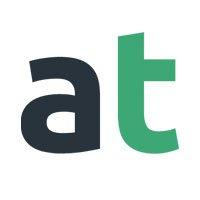Invest in a real estate fund
Invest in farmland
Investments
$100
The Roots Investment Community Fund allows investors to start with a minimum investment of $100.
Investments
$15,000
The minimum investment on AcreTrader varies by listing, generally starting at $15,000, with some past deals ranging from $3,000 to $100,000. This range is determined by factors such as the size of the offering and the price per acre.
Moderate Risk
3/5
Investing in the Roots Investment Community Fund carries risks including market fluctuations, economic changes, property-specific issues, and potential for financial loss.
Moderate Risk
3/5
Investing in AcreTrader involves risks like casualty, condemnation, and eminent domain, common to real estate investments.
Minimum Liquidity
1/5
Investors in the Roots Investment Community Fund can cash out after the first year, with liquidity options available quarterly for added flexibility.
Minimum Liquidity
1/5
AcreTrader investments are considered illiquid, meaning investors should be prepared to hold their investments for the specified duration. While it may be possible to sell shares in a private transaction after this period, there is no established market for them, making resale uncertain.
Receive new reviews from Fintorial
High Return
16 %
Investors in the Roots Investment Community Fund can expect an annualized return of 16%.
High Return
9.4-30.3 %
The returns from investing in AcreTrader vary, with historical examples showing realized internal rates of return (IRR) ranging from 9.4% to 30.3% over holding periods between 1.7 and 4.2 years. These variations highlight the potential for both moderate and significant returns, depending on the specific investment and market conditions.
Short-term Investment
1 year
The recommended investment period for the Roots Investment Community Fund is at least a year, but liquidity is offered quarterly for investors needing flexibility.
Long-term Investment
3-10 years
AcreTrader investments target hold periods of 3 to 10 years, though this can vary based on market conditions and sale opportunities. Properties may sell earlier or extend beyond the target period, depending on whether favorable buying offers arise or if market conditions dictate a longer hold.
Who can invest
United States
The Roots Investment Community Fund is open to both non-accredited and accredited investors.
Who can invest
United States
Investing on the AcreTrader platform is limited to accredited investors, as defined by SEC regulations. Non-U.S. citizens can invest if they are legal residents of the United States.
Moderate Volatility
3/5
Assets within the Roots Investment Community Fund may experience volatility due to economic conditions, interest rate changes, and local market dynamics. However, real estate typically shows less volatility than stocks, with rental income offering some stability.
Moderate Volatility
3/5
Farmland assets on AcreTrader typically exhibit lower volatility compared to stocks and bonds, offering a more stable investment option due to the steady demand for agricultural products and the land's intrinsic value.
Regulation and audits
SEC Regulated
The Roots Investment Community Fund is regulated by the SEC, with an offering circular filed under Regulation A+.
Regulation and audits
SEC Regulated
AcreTrader is regulated by the Securities Exchange Act of 1934, SEC rules, FINRA rules, and state laws, reflecting its commitment to transparency and investor protection. As a registered Broker-Dealer, it must adhere to strict financial standards, undergo regular audits, and comply with ethical practices to maintain its standing and ensure the security of its investors' assets.
Insurance
Yes
The Roots Investment Community Fund likely holds insurance to protect its assets, including property, liability, and loss of income insurance, safeguarding against damage, claims, and lost rental income.
Insurance
Yes
AcreTrader does not explicitly mention specific insurance coverage for investments on its platform. Generally, real estate investments, including farmland, are insured against risks like natural disasters and fire to protect investment value.
Payouts
Dividends
Investors receive quarterly distributions, which they can reinvest or cash out, offering flexibility in managing returns.
Payouts
Dividends
AcreTrader may distribute net cash from annual income to investors after operating expenses, typically once a year in December. These distributions, based on pro rata ownership, are not guaranteed. If distributed, funds go to the investor's AcreTrader wallet or, for SDIRA or IRA accounts, to the custodian.
Withdrawals
Investors can cash out after the first year, with the Roots Investment Community Fund offering quarterly liquidity options.
Withdrawals
Investors can typically get their money back when the property they've invested in is sold at the end of its expected hold period, which may range from 3 to 10 years.
Extra Fees
Yes
The platform charges a $5 transaction fee for the first investment and $3 for subsequent investments. A 6% fee applies if liquidating before one year; no fee after one year.
Extra Fees
Yes
AcreTrader charges investors initial closing costs around 2% of the offering value and an annual 0.75% servicing fee of the land's value for management. The primary revenue comes from a 5% commission on the farm's sale, charged to the seller. There are no “carried interest fees.” Fee structures vary by deal, so reviewing offering documents is recommended for specifics.
Taxes
Annual Statement
As a REIT, the Roots Investment Community Fund passing profits to shareholders who can deduct up to 20% of dividend income as capital gains, with no cap or wage restrictions.
Taxes
Tax Form
AcreTrader aims to provide K-1 tax forms electronically by early March, although delays can occur due to external reporting needs. Tax treatment varies: gains on land sold within a year are taxed at ordinary income rates, while longer holdings are taxed at capital gains rates. Depreciation on buildings or equipment may affect taxes.

